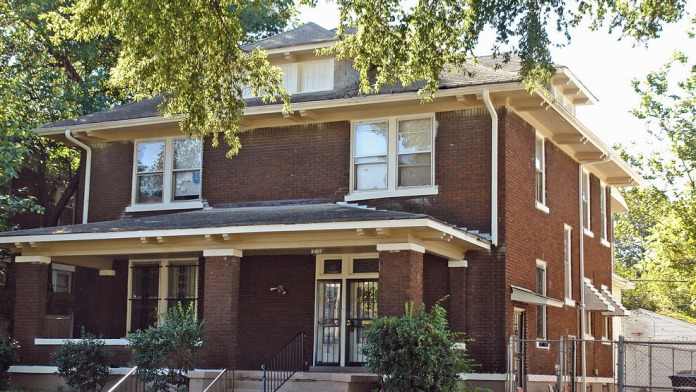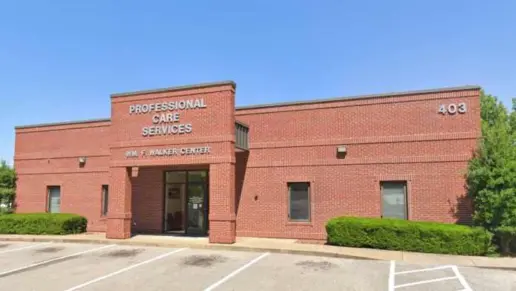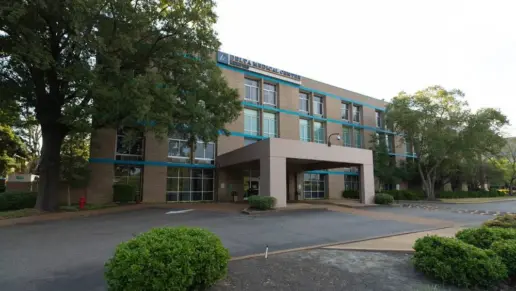About Mid South Healthnet – Vance Avenue
Located in the heart of Memphis, Mid South Healthnet Vance Avenue provides around the clock residential care for adults. Their specialized services are tailored to address the unique needs of veterans and patients living with HIV and AIDS. They also offer programs catering to trauma survivors.
Holistic Recovery for Veterans in Memphis
I’m especially impressed by this facility’s holistic approach to healing. They utilize multiple therapeutic techniques, including cognitive behavioral therapy and experiential therapy, which engages patients in real time activities designed to process emotions and experiences.
They also use medical nutrition therapy, personalized meal planning meant to address nutritional deficiencies and promote overall health. In addition, nicotine replacement therapy is available for those who aim to quit smoking through the use of nicotine gum or patches.
For payment, the center accepts Medicaid and Medicare along with other state financed insurances. They accept military insurance and offer sliding scale fees to individuals who are eligible, based on their income and their ability to pay.
Comprehensive Treatment in the Home of the Blues
Their residential setting stands out to me, providing housing and meals along with treatment services. They offer private accommodations in the center of Memphis, with multiple attractions to visit.
The nearby Central Gardens Historic District is known for its historic homes and provides a peaceful environment for outpatient recovery. Overton Park affords green spaces and walking trails. Memphis Botanic Garden provides quiet gardens and natural beauty. Mississippi River Park offers scenic views and paths along the river, perfect for reflection and relaxation.
Facility Overview
Rehab Score
Gallery

Other Forms of Payment
Medicaid is a state based program that helps lower-income individuals and families pay for healthcare. Medicaid covers addiction treatment so those enrolled can use their coverage to pay for rehab. When a program accepts Medicaid the client often pays very little or nothing out of their own pocket.
Self-pay involves paying for treatment out of your own pocket. You can use savings or credit, get a personal loan, or receive help from family and friends to fund your treatment. If you don't have insurance or your insurance plan doesn't cover a specific program, self-pay can help ensure you still get the care you need.
Addiction Treatments
Levels of Care
 Inpatient
Inpatient
Treatments
Many of those suffering from addiction also suffer from mental or emotional illnesses like schizophrenia, bipolar disorder, depression, or anxiety disorders. Rehab and other substance abuse facilities treating those with a dual diagnosis or co-occurring disorder administer psychiatric treatment to address the person's mental health issue in addition to drug and alcohol rehabilitation.
Mental health rehabs focus on helping individuals recover from mental illnesses like bipolar disorder, clinical depression, anxiety disorders, schizophrenia, and more. Mental health professionals at these facilities are trained to understand and treat mental health issues, both in individual and group settings.
Programs

Adult Program

Young Adult Program
Clinical Services
Cognitive Behavioral Therapy (CBT) is a therapy modality that focuses on the relationship between one's thoughts, feelings, and behaviors. It is used to establish and allow for healthy responses to thoughts and feelings (instead of unhealthy responses, like using drugs or alcohol). CBT has been proven effective for recovering addicts of all kinds, and is used to strengthen a patient's own self-awareness and ability to self-regulate. CBT allows individuals to monitor their own emotional state, become more adept at communicating with others, and manage stress without needing to engage in substance abuse.
Experiential therapy is a form of therapy in which clients are encouraged to surface and work through subconscious issues by engaging in real-time experiences. Experiential therapy departs from traditional talk therapy by involving the body, and having clients engage in activities, movements, and physical and emotional expression. This can involve role-play or using props (which can include other people). Experiential therapy can help people process trauma, memories, and emotion quickly, deeply, and in a lasting fashion, leading to substantial and impactful healing.
Group therapy is any therapeutic work that happens in a group (not one-on-one). There are a number of different group therapy modalities, including support groups, experiential therapy, psycho-education, and more. Group therapy involves treatment as well as processing interaction between group members.
In individual therapy, a patient meets one-on-one with a trained psychologist or counselor. Therapy is a pivotal part of effective substance abuse treatment, as it often covers root causes of addiction, including challenges faced by the patient in their social, family, and work/school life.
Nutrition therapy, aka medical nutrition therapy (MNT), is a way of treating physical, emotional, and medical conditions through diet. Specific dietary plans are designed by professional nutritionists or registered dietitians, and patients follow them in order to positively affect their physical and mental health.
Staff
Kim Williams
Executive Director
Shunta Williams
DCOO
Contact Information
1187 Vance Avenue
Memphis, TN 38104


